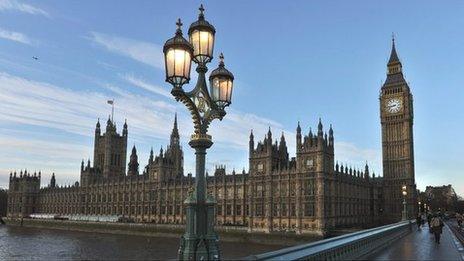Cynon Valley Labour all-women shortlist row escalates
- Published
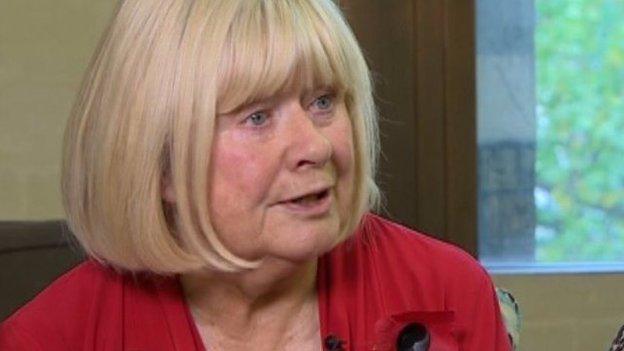
Ann Clwyd MP is not commenting on this latest development
A row over an enforced all-women shortlist in the Labour seat being vacated by MP Ann Clwyd has escalated.
The Labour Party decided the candidate to replace Ms Clwyd when she retires at the next general election would be chosen from a list of women.
But the local party in Cynon Valley has now insisted it will not select a candidate using this method.
Welsh Labour says the party will not be backing down and it could run the selection process.
The decision to impose an all-women shortlist on the Cynon Valley branch was taken after Ms Clwyd announced she planned to stand down as an MP at next year's election.
Only 13 women have ever been MPs in Wales, an issue many senior people in the party want to address.
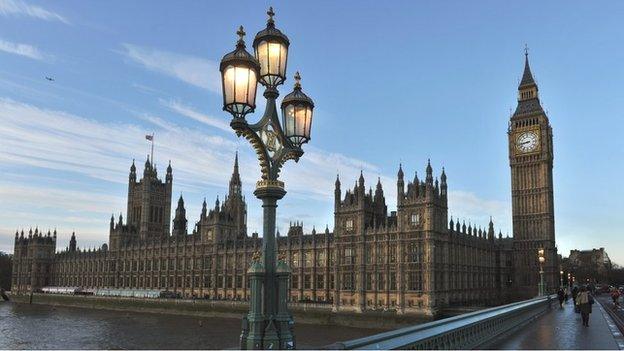
Only 13 women have represented Welsh seats in Parliament
Cardiff North AM and former MP Julie Morgan has said the shortlists should be considered by Labour for every Westminster seat that comes up in Wales.
But while an all-women shortlist is being used by Labour in Cynon Valley, in Aberavon the party has chosen Stephen Kinnock, son of the former Labour leader Lord Kinnock, to stand as its candidate as Hywel Francis stands down.
Local constituency officials in Cynon Valley said they would like the best candidate regardless of gender.
Constituency secretary Alun Williams said: "We feel that we have been badly let down. Our concerns have not been addressed.
"The consultation process was a sham and there has been no reasonable explanation given for the decision to give an open selection to Aberavon while imposing an all-women shortlist on Cynon Valley.
Cynon Valley party secretary Alun Williams says they will refuse to select a candidate if an all-women shortlist is imposed
"While the party is talking about politics from the grassroots up they are ignoring the genuine concerns of their members in Cynon Valley.
"We have therefore decided to 'go on strike'. We will not provide a procedures secretary, a selection committee or arrange the hustings meetings or correspondence to members for an all-women shortlist selection. We are still deeply disturbed at the failure to respond to our concerns."
Spoken out
The Labour Party has confirmed in a letter to the constituency party that its decision to impose an all-women shortlist would not change.
Labour's decisions on which constituencies adopt the shortlists are made by its National Executive Committee (NEC), the governing body of the party as a whole.
Cardiff North AM Julie Morgan says all-women shortlists are essential to boost their presence in parliament
The shortlists are Labour Party policy and First Minister Carwyn Jones has spoken out in support of the decision in Cynon Valley.
Ms Clwyd has said she did not want to influence the process but added it was "up to the people in the party locally to make their own decision on it".
A Welsh Labour spokesman said: "We make absolutely no apology for seeking to increase the number of women in parliament or for all-women shortlists.
"The selection in Cynon Valley will be from an all-women shortlist, as decided by Labour's NEC.
"In the absence of a procedural secretary and selection committee, Welsh Labour will administer the selection process on behalf of the NEC, in which local members will select a candidate on a one-member-one-vote basis."

ALL-WOMEN SHORTLISTS Q&A:
Why is Labour imposing all-women shortlists?
Since 1918 just 7% of MPs elected to parliament have been women - 368.
Wales has had 13 female MPs since women won the vote.
Labour says it is committed to ensuring its candidates reflect the people they seek to represent, and all women-shortlists are the best way to ensure a better gender balance.
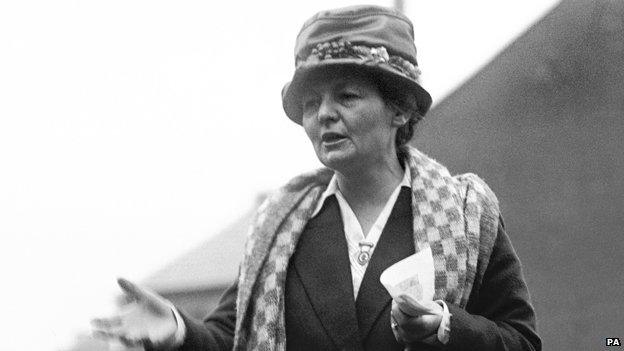
Labour's Margaret Bondfield became one of the first women to take a seat in Parliament in 1923

How long have they been used?
In 1995 the then Labour leader Tony Blair announced all-women shortlists would be used for the 1997 election.
They were judged to breach sex discrimination laws in the year before the poll.
Candidates already in place remained and a record 101 female Labour MPs arrived at Westminster at the election.
The Sex Discrimination Act 2002 allowed political parties to use all-women shortlists for future elections.
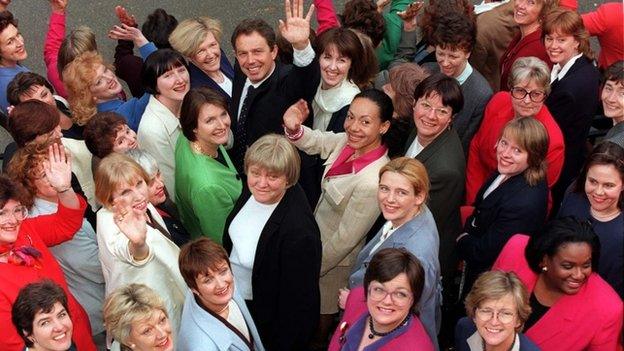
Tony Blair with some of the 101 female Labour MPs elected in 1997

What happened in Blaenau Gwent?
Labour's imposition of an all-women shortlist for the 2005 general election prompted a huge fight with the local party, where the late Peter Law, then the constituency's assembly member and an ex-Welsh minister, wanted to stand.
In the end he stood as an independent, roundly defeating the official Labour candidate. The party later apologised for over-riding local wishes.
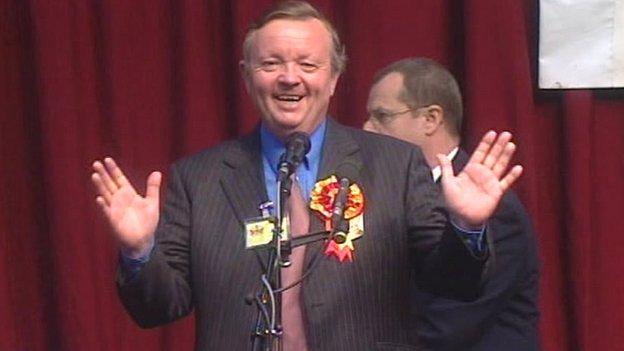
Peter Law won as an independent candidate nine years ago

What is the current situation?
There are six female Labour MPs, and all-women shortlists in Cynon Valley and Swansea East would mean a minimum of half the party's 18 new candidates would be women.
All-women shortlists were used in Aberconwy, Cardiff Central, Cardiff North, Carmarthen West and South Pembrokeshire, Monmouth and Gower.
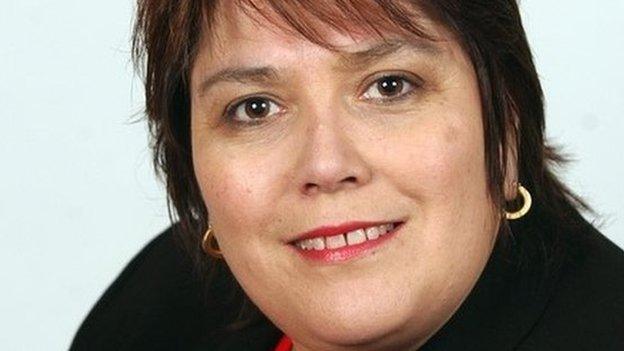
Swansea East Labour MP Sian James is stepping down next year

How well are women represented in Cardiff Bay?
42% of AMs are women, with half of the 30-strong Labour contingent in the Senedd chamber being female.
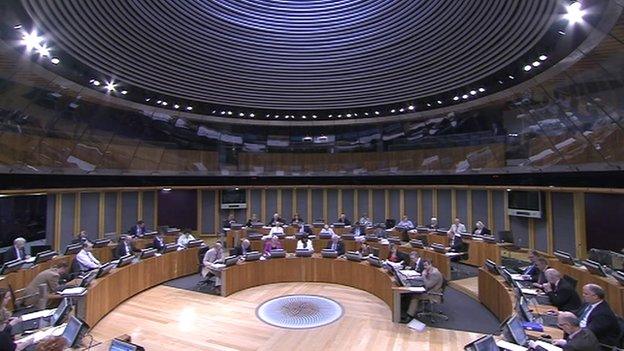
Half of Labour assembly members and overall 42% of AMs are female in the Senedd

What about the Conservatives, Plaid Cymru and the Liberal Democrats?
Plaid Cymru said local parties would decide council, assembly and parliamentary candidates but gender balance is needed for the top two positions on its assembly regional list.
The Welsh Liberal Democrats rejected all-women shortlists, but ruled out all-male shortlists for Westminster and assembly elections.
The Welsh Conservatives have no specific mechanisms in place to increase the number of women selected.
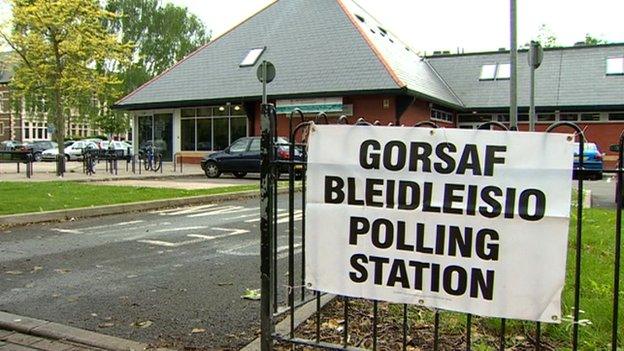
Labour is the only main political party to have brought in all-women shortlists
- Published4 July 2014
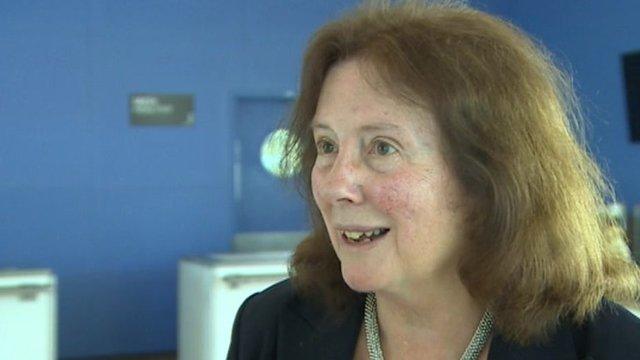
- Published19 June 2014
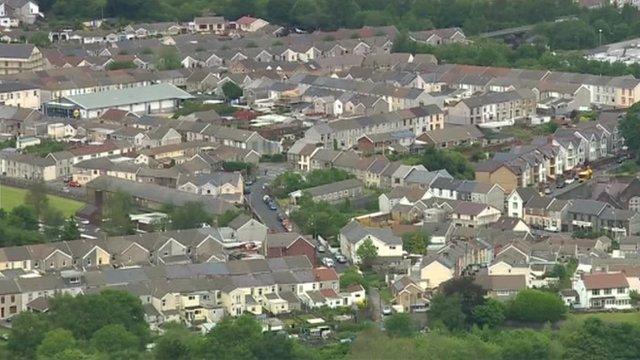
- Published12 June 2014

- Published8 June 2014
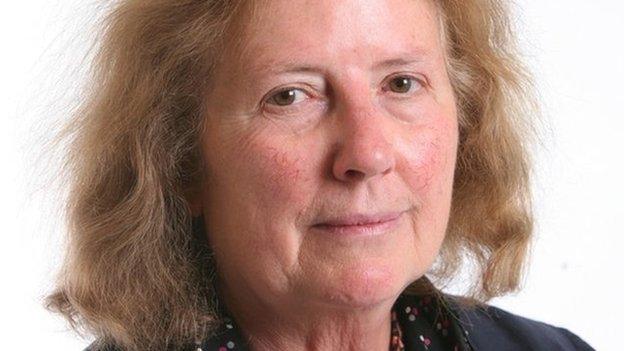
- Published2 June 2014
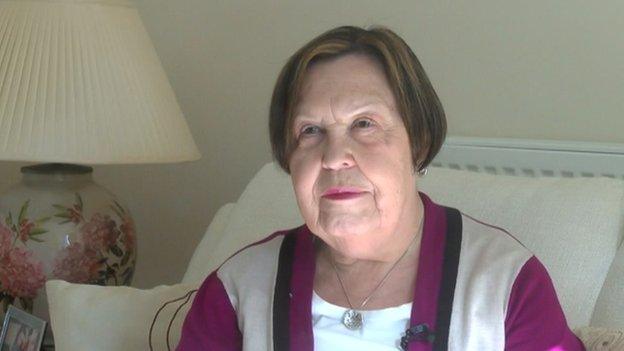
- Published2 June 2014
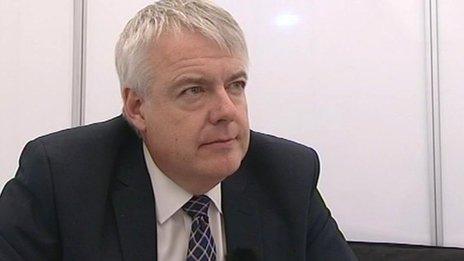
- Published2 June 2014
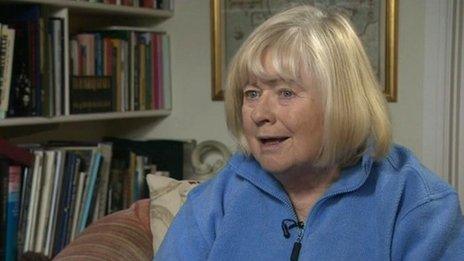
- Published1 June 2014
